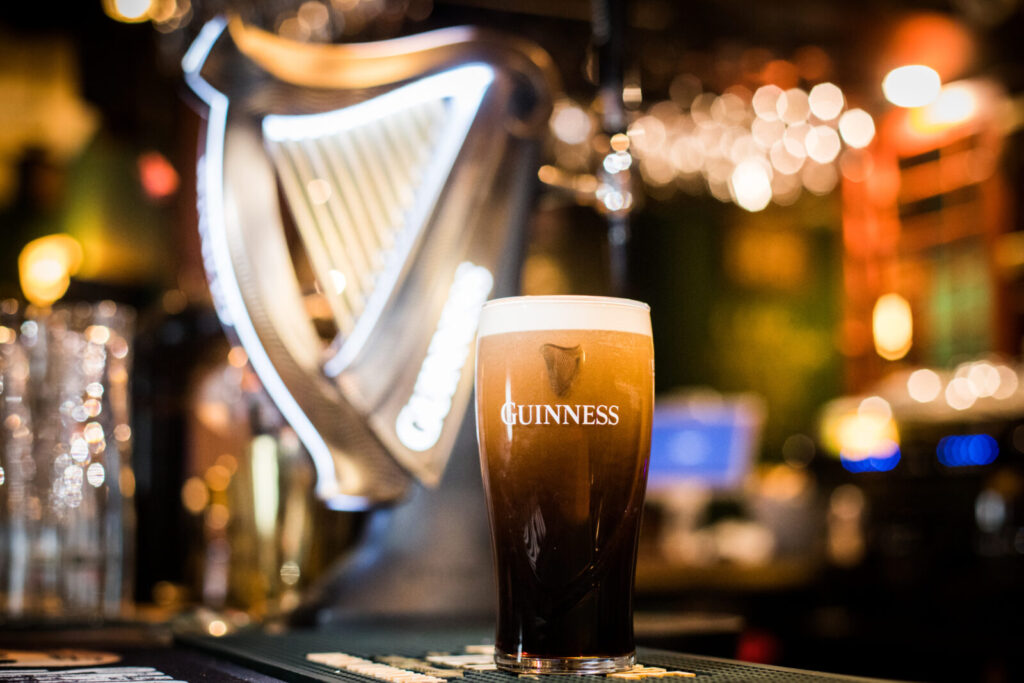Brief • 3 min Read
In The Harris Poll Tracker (Week 95) fielded December 17th to 19th, 2021 among 2,103 U.S. adults, we look at an update on public outlook as Omicron surges, what the new wave means for holiday travel, what startups are thinking about in the post-pandemic world, New Year’s health resolutions, and urban development in Chicago.
As a public service, our team has curated key insights to help leaders navigate COVID-19. Full survey results, tables, and weekly summaries can be accessed for free at The Harris Poll COVID-19 Portal. We will continue to actively field on a regular cadence to track the shifts in sentiment and behaviors as the news and guidelines evolve.
Bracing For Impact: Omicron
At the onset of Omicron, Americans told us they were more worried about what the new variant will bring than Delta. As cases rise across the country, they’re still uncertain about what may come while concern and precautions have returned to, but not exceeded, the Delta wave. Here’s what we know:
- What will the new year bring? Over half (54%) of Americans say the pandemic could be worse in 2022 with Omicron than the last two years, while (46%) say the pandemic will be better in the new year. And in one of the metrics we’ve been tracking since October 2020, (48%) say the worst is ahead of us – up 3-pts from last week – but still less than in the wake of the discovery of Omicron, when (50%) said the worst is yet to come.
- Return to Normal Index: Americans are less comfortable doing normal activities today than they were last week and have returned to Delta-level lows in October: (43%) are comfortable visiting family or friends without a mask today (down 4-pts from last week but unchanged from October 24th); (35%) are comfortable going out for dinner indoors (down 6-pts and unchanged, respectively); and (31%) are comfortable shopping in a store without a mask (down 5-pts and unchanged, respectively).
- Fear of a new wave of the virus is up 3-pts from last week (71% from 68%) but is unchanged from the announcement of Omicron’s discovery over Thanksgiving weekend (73%) and below the following week (75% on December 5).
- In The Atlantic, Ashish Jha writes to not panic about Omicron – but not to be indifferent, either.
Takeaway: Despite declining public interest in COVID, the Omicron wave could be the worst part of the pandemic yet, as reported in Axios. Pandemic fatigue may be setting in as Americans are cautiously tapering some public activity, but not likely to return to March 2020 just yet.
Omicron Is Forcing Americans to Rethink Some – But Not All – of Their Holiday Plans: STAT/Harris Poll
The Omicron variant now accounts for 73% of new COVID-19 cases in the U.S., and growing dominance has led to 4 in 5 vaccinated Americans reporting they will wear a mask inside public places in our survey in partnership with STAT. Here’s what else we learned:
- Home for the Holidays: One-third (33%) of Americans reported plans to travel for the upcoming holidays, and nearly as many (30%) said they would fly internationally early next year.
- Boost Up: The large majority (85%) of vaccinated Americans say they will get or already received a booster shot.
- Where to watch the ball drop? Just over 4 in 10 (43%) say they would still attend an outdoor event with a large crowd, including (53%) of Millennials and (48%) of Gen Z.
- Yet, while both vaccinated and unvaccinated Americans have events coming up, it is still not clear whether the more contagious Omicron strain causes mild or severe cases of COVID-19.

Takeaway: Federal health officials are predicting a sky-rocketing number of Omicron cases this winter, and businesses and companies need to be dynamic in responding to vaccine mandates, routine testing, and labor shortages to prevent operational delays and service cuts.
Striving & Thriving: Startups in the Post-COVID-19 World, Part Two
In part two of Insights into Innovation, Finance and Talent in the Post-Pandemic Startup Ecosystem, we asked startup leaders across different industries to paint a picture of their concerns, hopes, predications, and plans for a post-pandemic world.
- While (86%) of startups reported that they are set up for remote work, only (5%) plan to have all employees work remotely post-pandemic. Yet, flexibility of work location and scheduling is increasingly becoming an expectation for employees rather than a perk.
- Must haves in a new office: An overwhelming majority of startup entrepreneurs are in favor of COVID safety measures with (84%) believing employees need to be vaccinated and 8 in 10 agreeing that employees should continue to wear masks at work.
- Yet, hybrid and remote work are still common and startup leaders need to facilitate a smooth work-from-home to attract talent and prevent employee turnover, and so they must invest in supporting remote workers through ways such as:

Takeaway: With the flexibility of work schedules and location, leaders and managers need to allow a great degree of worker autonomy while focusing their workforce performance management strategies and systems on job outcomes as opposed to focusing on managing daily tasks.
Americans Turning to Trendy Diets to Shed Pandemic Pounds: HealthDay-Harris Poll
Americans in the prime of their lives are worried about the pounds they packed on during the pandemic and plan to do something about it in the new year, according to our survey with HealthDay. Here’s what else we learned:
- More than two-in-five adults (43%) have reported weight gain during the pandemic, and nearly two-thirds (63%) of U.S. adults plan to change their diet – eating less or cutting back on specific foods – in 2022.
- Another thing to worry about: Adults (ages 18 to 44) are most worried about the health effects of their pandemic weight gain and are more likely to fear their current health will affect them in years to come.
- Harris Poll VP Kathy Steinberg isn’t surprised as these adults “are more likely to have been stressed during the pandemic” with their employment and childcare demands.
- How are they going to do it? Nearly (20%) of Americans plan to count calories this New Year, (16%) will try intermittent fasting, and (16%) will try a low-fat diet while another (15%) will cut carbs.
Takeaway: Consumers are looking for more products that serve their health and wellness this New Year, and companies need to think creatively on how to serve their customers’ new health goals in midst of the pandemic.
Investments in Urban Development Could Prevent Chicago From Plateauing: Crain’s Chicago Business-Harris Poll
Is Chicago past its prime? It feels that way to many city-dwellers, according to our latest study in partnership with Crain’s Chicago Business. Here’s what else they said:
- Downtown losing its appeal? Chicago city-dwellers are (64%) less likely than their suburbanite cousins (71%) to say that their neighborhood is enticing new residents and businesses.
- Further, more city residents (23%) describe their neighborhood as declining compared to their suburban counterparts.
- While most Chicagoans (81%) agree that urban development initiatives offer a strong incentive to attract new residents and to spur growth, only (30%) believe that development initiatives have positively affected their own neighborhood.
- Be careful of gentrification: (58%) of Chicago residents believe gentrification is a necessary side effect of urban development, but (81%) want such renewal projects to work within a neighborhood’s existing footprint.
Takeaway: Will Johnson, co-CEO of The Harris Poll, says that “the challenge for city leaders is clear: Revitalize and restore Chicago without transforming its character. Maintain the diversity and personality that made it the City That Works in the first place.”
Subscribe for more Insights
Subscribe to our newsletter for the latest trends in business, politics, culture, and more.
Download the Data
This survey was conducted online within the U.S. by The Harris Poll from December 17 to 19, among a nationally representative sample of 2,103 U.S. adults.
Download
Subscribe for more Insights
Subscribe to our newsletter for the latest trends in business, politics, culture, and more.
Download the Data
This survey was conducted online within the U.S. by The Harris Poll from December 17 to 19, among a nationally representative sample of 2,103 U.S. adults.
DownloadRelated Content








